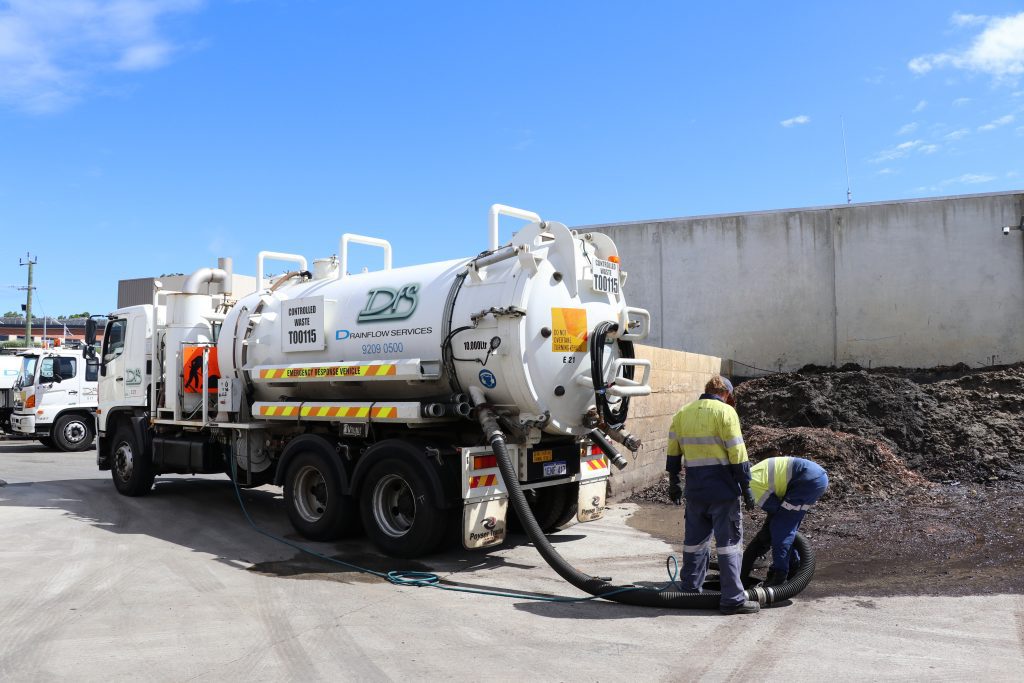The Best Guide To Reclaim Waste
The Best Guide To Reclaim Waste
Blog Article
Getting My Reclaim Waste To Work
Table of ContentsAll about Reclaim WasteReclaim Waste for DummiesThe Greatest Guide To Reclaim WasteThe Definitive Guide to Reclaim WasteGet This Report about Reclaim Waste
Discover the types, occurrences, and kinds of liquid waste. Residential sewage waste refers to the waste and items from a household sewage-disposal tank. This type of waste is developed by people in houses, colleges, and other structures. This only includes sewage-disposal tanks that have a drain area. The appropriate monitoring and disposal of domestic sewage waste call for fluid waste to be moved to a sewage therapy plant where the proper techniques and equipment are related to detoxify and take care of waste.
Commercial waste commonly consists of potential dangers, such as combustible materials or a blend of fluid and solid waste products, and calls for an extra advanced and in-depth disposal procedure. The disposal of business waste generally includes the purification of waste prior to transportation to guarantee risk-free and correct disposal. Hazardous waste is created from results and drainage of industrial processes and production.
This type of waste can not make use of the very same sewage management transportation or processes as septic or industrial fluids. The hazardous waste monitoring procedure calls for the inspection and testing of liquid waste before it undergoes the disposal process (liquid waste disposal melbourne). Runoff waste is the liquid waste that comes from runoff and excess stormwater in highly populated areas or cities
Runoff waste can cause contamination and flooding if not handled properly. Find out more about sewer cleansing and waste management. Ensuring correct waste management can stop catastrophes and decrease environmental injury. Both people in household setups and experts in commercial or manufacturing sectors can gain from recognizing the processes and regulations of liquid waste administration.
6 Easy Facts About Reclaim Waste Shown
Call PROS Services today to find out about our waste management and disposal services and the appropriate methods to look after the liquid waste you create.
(https://www.openlearning.com/u/leonaube-smse1x/about/)This supposed 'wastewater' is not only an essential resource however, after treatment, will be released to our land, waterways or the sea. Used water from commodes, showers, baths, kitchen area sinks, washings and industrial processes is recognized as wastewater.

water used to cool down equipment or clean plant and equipment). Stormwater, a type of wastewater, is runoff that streams from farming and urban locations such as roofs, parks, gardens, roadways, courses and try this out gutters into stormwater drains pipes, after rainfall. Stormwater flows unattended directly to local creeks or rivers, at some point getting to the sea.
Reclaim Waste for Dummies
In Queensland, the majority of wastewater is dealt with at sewer therapy plants. Wastewater is transported from residential or industrial websites with a system of sewage systems and pump terminals, called sewage reticulation, to a sewer therapy plant. Neighborhood federal governments construct, keep and run most sewer treatment plants. Operators are certified under the Environmental Security Act 1994 to discharge cured wastewater at an acceptable environmental standard right into rivers.
The Department of Natural Resources advises city governments concerning handling, operating and maintaining sewerage systems and therapy plants. In unsewered areas, local federal governments might need homeowners to install specific or family sewage treatment systems to deal with domestic wastewater from toilets, cooking areas, bathrooms and laundries. The Division of Natural Resources authorizes using household systems when they are confirmed to be reliable.
In some brand-new class, therapy of some stormwater to eliminate clutter, sand and gravel has actually begun making use of gross pollutant catches. Wastewater therapy happens in 4 stages: Eliminates strong matter.
Makes use of tiny living microorganisms understands as micro-organisms to damage down and remove remaining dissolved wastes and great fragments. Micro-organisms and wastes are included in the sludge.
Top Guidelines Of Reclaim Waste
Nutrient removal is not available at all sewer treatment plants due to the fact that it needs pricey specialised equipment. Clear fluid effluent generated after therapy might still contain disease-causing micro-organisms - liquid waste removal melbourne.

A lot of wastewater flows right into the sewerage system. Under the Act, regional governments provide authorizations and licences for eco relevant tasks (Periods) including wastewater launches that might have a local impact.
The Facts About Reclaim Waste Revealed
Tracking supplies accurate info regarding water quality and can validate that licence conditions are being satisfied. The info acquired with tracking supplies the basis for making water high quality choices.
Report this page